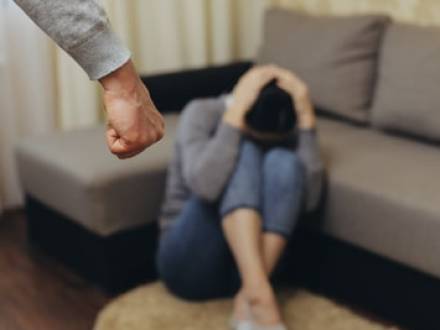1425 McHenry Road, Suite 204, Buffalo Grove, IL 60089
●Free Initial Consultation
I Own My House. How Can Domestic Battery Keep Me Out?
 If you have been charged with domestic battery – whether or not the charges are true – you could be facing an array of adverse consequences. If you are under a protection order, you will be ordered to have no contact with the alleged victim. But what if the alleged victim is your spouse, and the home you both live in belongs to you?
If you have been charged with domestic battery – whether or not the charges are true – you could be facing an array of adverse consequences. If you are under a protection order, you will be ordered to have no contact with the alleged victim. But what if the alleged victim is your spouse, and the home you both live in belongs to you?
While there are a number of variables in that scenario, generally speaking, you will be unable to enter your home until your domestic battery charges are resolved or the protection order is modified. If you find yourself unable to return to your home as a result of domestic battery charges and a protection order, it is important to speak to a knowledgeable Arlington Heights, IL criminal defense lawyer from The Law Offices of Matthew R. Gebhardt, P.C..
How Can the Conditions of My Order of Protection Order Be Lifted Early?
Either party in a protection order case can file a Motion to Modify the protection order or a Motion to Terminate the order. You will appear before a judge, and your attorney will argue on your behalf as to why the protection order should be modified or terminated.
Perhaps you want to be allowed to go to your home and get some of your things. Or, perhaps you want to ask the court to allow you to move back into your home and let the person who filed the order of protection move somewhere else. Regardless of the reason for your motion to modify or terminate a protection order, never violate the protection order by going to your home without permission from the court.
How Can I Be Kept Out of My Own Home?
Things can get more complicated when the home you were forced to vacate is not marital property. For example, suppose you have owned the house for two decades. You married your spouse a few years ago and have deliberately kept the house in your name only as separate property. While the protective order keeps you from going to your home because your spouse is there, your attorney can explain to the judge that the house belongs solely to you and is not marital property.
If no minor children are in the home, the judge may say that your spouse must move out of the home, and then you would be allowed to return. If you and your spouse have children together, the judge may determine that it is in the children's best interests to remain in the home for the time being. If you cannot convince the judge to modify the terms of the protective order, you will be forced to wait until it expires, or a hearing is held, and the protective order is extended.
What Are the Penalties for Domestic Battery in Illinois?
Being charged with domestic violence will result in a Class A misdemeanor. Under Illinois law, a Class A misdemeanor conviction can result in up to one year in jail and a fine as large as $2,500. If you have a prior conviction for any of the following offenses, domestic battery can be charged as a Class 4 felony.
- Violating an order of protection
- Murder or attempted murder
- Any type of battery or aggravated battery
- Sexual assault or aggravated sexual assault
- Kidnapping
- Unlawful restraint
- Aggravated stalking
- Aggravated arson
- Aggravated discharge of a firearm
A Class 4 felony conviction can result in between one and three years in prison and a fine of as much as $25,000.
Contact a Lake County, IL Domestic Battery Lawyer
While orders of protection have legal consequences, they can also result in financial and emotional damage to families. If you are facing domestic battery charges, speaking to a knowledgeable Waukegan, IL domestic battery attorney from The Law Offices of Matthew R. Gebhardt, P.C. is important. Attorney Matthew R. Gebhardt has worked as a prosecutor for the Cook County State’s Attorney’s Office and has broad experience in all facets of criminal law. Call 847-239-4703 to schedule a free consultation.

















